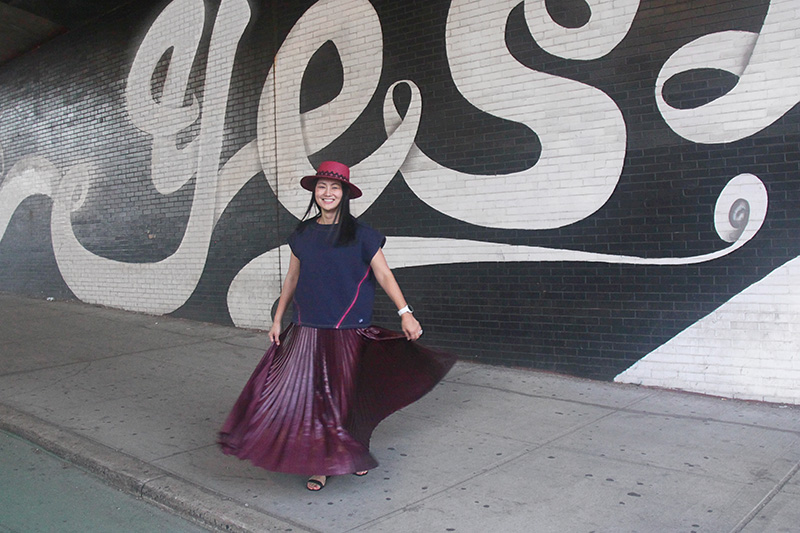
October is Breast Cancer Awareness Month. Here, we update a story we published in 2018 about a collaboration between a faculty member and alumna.
Despite a recurrence of cancer, an FIT faculty member is working with an alumna to manufacture and market a garment for post-op mastectomy patients. Two years ago, Yoko Katagiri, assistant professor, Social Sciences, encouraged students in her Fashion Economics class to help people in need. Katagiri herself was a breast cancer survivor, and documented on her blog, Heal in Heels, how she used style to help her feel and look better during her recovery. Technical Design student Sidney Nobleza ’18 heard the call and, for her capstone project, created three garments for breast cancer survivors that would look great while accommodating post-surgery limitations.
Now, using her own resources, Katagiri, with Nobleza’s technical support, has manufactured 50 units of the blouse the pair co-developed last year. (They tweaked the design slightly.) After a mastectomy, most patients can’t raise their arms overhead to put on clothes, and existing hospital attire that addresses the problem tends to be drab. Called Relaxip, the new garment is designed to be put on easily, with strategically placed zippers. Concealed pockets can store surgical drainage devices. It comes in an attractive deep blue.
Producing the blouses was expensive. In addition to manufacturing fees, Katagiri paid a provisional patent lawyer to protect the design. (Its status is “patent pending.”) They sell for $64.50 apiece plus $7 shipping (“This markup is very low compared to the standard. I know, I teach this,” Katagiri says), and she has launched a GoFundMe campaign so she can offer a discount for patients. She’s treating the idea like a startup, working to find ways to offer the piece to hospitals and local breast cancer support groups; she hopes to have a booth at medical supply conferences and market weeks soon.
Within days of production, Katagiri was diagnosed with a recurrence. “I have been so scared,” she says, “but this project keeps me going strong.”


